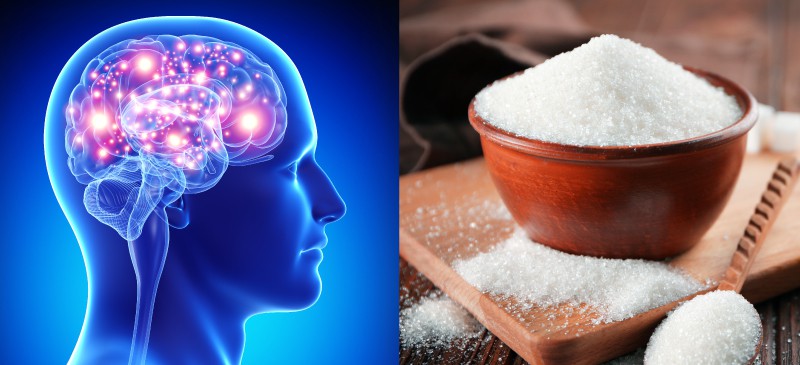This Dr. Axe content is medically reviewed or fact checked to ensure factually accurate information.
With strict editorial sourcing guidelines, we only link to academic research institutions, reputable media sites and, when research is available, medically peer-reviewed studies. Note that the numbers in parentheses (1, 2, etc.) are clickable links to these studies.
The information in our articles is NOT intended to replace a one-on-one relationship with a qualified health care professional and is not intended as medical advice.
This article is based on scientific evidence, written by experts and fact checked by our trained editorial staff. Note that the numbers in parentheses (1, 2, etc.) are clickable links to medically peer-reviewed studies.
Our team includes licensed nutritionists and dietitians, certified health education specialists, as well as certified strength and conditioning specialists, personal trainers and corrective exercise specialists. Our team aims to be not only thorough with its research, but also objective and unbiased.
The information in our articles is NOT intended to replace a one-on-one relationship with a qualified health care professional and is not intended as medical advice.
What Sugar Does to Your Brain
February 6, 2018

Dextrose. Fructose. Lactose. Maltose. Glucose. A sugar by any other name is still sugar. In fact, there are more than 50 different names for it. But is sugar bad for you? Essentially, there are two types of sugar; there is “good” sugar that occurs naturally in fruits and vegetables and “bad” added sugar that’s added to sweeten sodas, candy, baked goods, and so on.
The “good” sugar is actually needed within the body, particularly within the brain. Following a meal, food is broken down; specifically glycogen, carbohydrates, proteins, fats and triglycerides, which are broken down into glucose. Glucose is so crucial to cell function that glucose deprivation can lead to loss of consciousness and eventual cell death. Therefore, after a meal, the body has a system in place in which excess glucose is stored as a reserve.
All cells need the energy to function; the large mass of neuron cells that make up the brain needs energy, largely in the form of glucose, to function. Did you know that the brain uses approximately 20 percent of an individual’s daily energy intake? (1)
Not only is sugar essential for your basic brain functions, but it tastes delicious, too! Once you eat something with sugar in it, your taste receptors are activated, sending signals to your brain that set off an entire cascade of stimulation.
In particular, the dopaminergic pathway is activated and triggers your “YUM!” signal. This pathway starts in a cluster of cells at the base of your brainstem called the ventral tegmental area (VTA) and extends through the lateral hypothalamus to the nucleus accumbens in the forebrain. Behaviors that stimulate the release of the neurotransmitter, dopamine, within this pathway have been shown to be highly motivational.

Glucose is crucial to cell function and survival and it stimulates the reward pathway in your brain which makes everything feel like unicorns and rainbows. Life is good. Except that too much of something, is usually the opposite of good. But how many grams of sugar should you ingest per day? The American Heart Association suggests that individuals ingest a maximum daily intake of 6 teaspoons of sugar for women and 9 teaspoons for men. On average, people ingest 22 teaspoons of added sugar, which is on top of the naturally occurring sugar in our diet. (2, 3)
So as our reward pathway keeps getting stimulated, the dopamine receptors become desensitized and require more dopamine to get the same pleasant feeling.
Therefore, there needs to be more consumption of, in this case, the sugary food or beverage, to elicit the same response. (Learn how much sugar per day is the right amount.) This increase in consumption has been shown to result in obesity, including childhood obesity. An increased diet in saturated fats and sugar (also known as a high-energy diet) can have fundamental changes within the brain that in conjunction with the increased neurotransmitter release (dopamine) can have detrimental effects. Such effects include…
Learning and Memory
Studies show that a diet high in sugar and saturated fats can promote oxidative stress, leading to cell damage. In 2010 Scott Kanoski, an associate professor of biological sciences at Perdue University, demonstrated that a three-day diet of increased sugar and saturated fats resulted in impaired hippocampal function (learning and memory), causing the rats to have difficulty finding food within a maze. (4)
Other studies also illustrate that the hippocampus, in particular, is sensitive to a high-energy diet. (5)

Addiction
Sugar addiction is real. The pathway activated for addiction is the same as the reward pathway. Persistent increases in the release of the neurotransmitter, dopamine, leads to desensitization and requires more consumption for the reward. It changes gene expression and creates a consumption→ Dopamine release→ reward→ pleasure→ motivate cycle that is increasingly difficult to break. (6)
Depression & Anxiety
Attempts in trying to break the addictive cycle can lead to mood swings and irritability. Eliminating all additive sugar from your diet can lead to some of the same symptoms of drug withdrawal. Sugar withdrawal symptoms include headaches, anxiety, cravings and even chills.
Cognitive Deficits
Prolonged diets with high sugar may lead to changes in gene expression. That affects everything from neurotransmitters to receptors and the basic function of the cell. In particular, studies suggest the brain-derived neurotrophic factor (BDNF) is impacted. This is active in the hippocampus, cortex and forebrain and is vital to learning and memory, as well as supporting existing neurons while promoting the formation of new synapses. This is reduced in high sugar diets. (7)
Therefore, it’s unsurprising that a correlation between low BDNF levels and Alzheimer’s, depression and dementia has been discovered. New and continuing research in the field of neuroscience continues to provide valuable information on the effect that excessive sugar has on the brain. Further information gained from such research could also lead to changes in the way that specific cognitive disorders are treated. (8)












